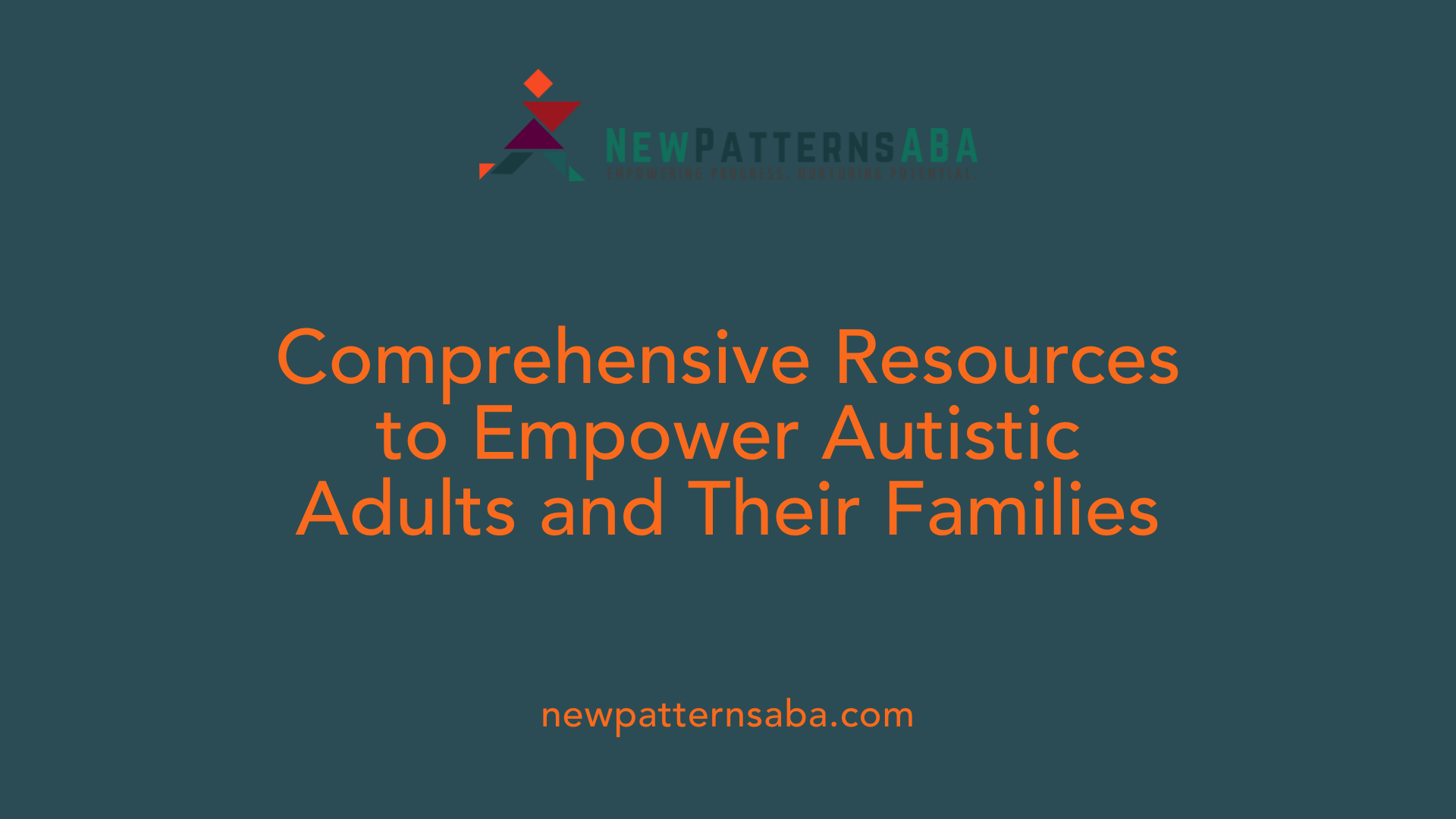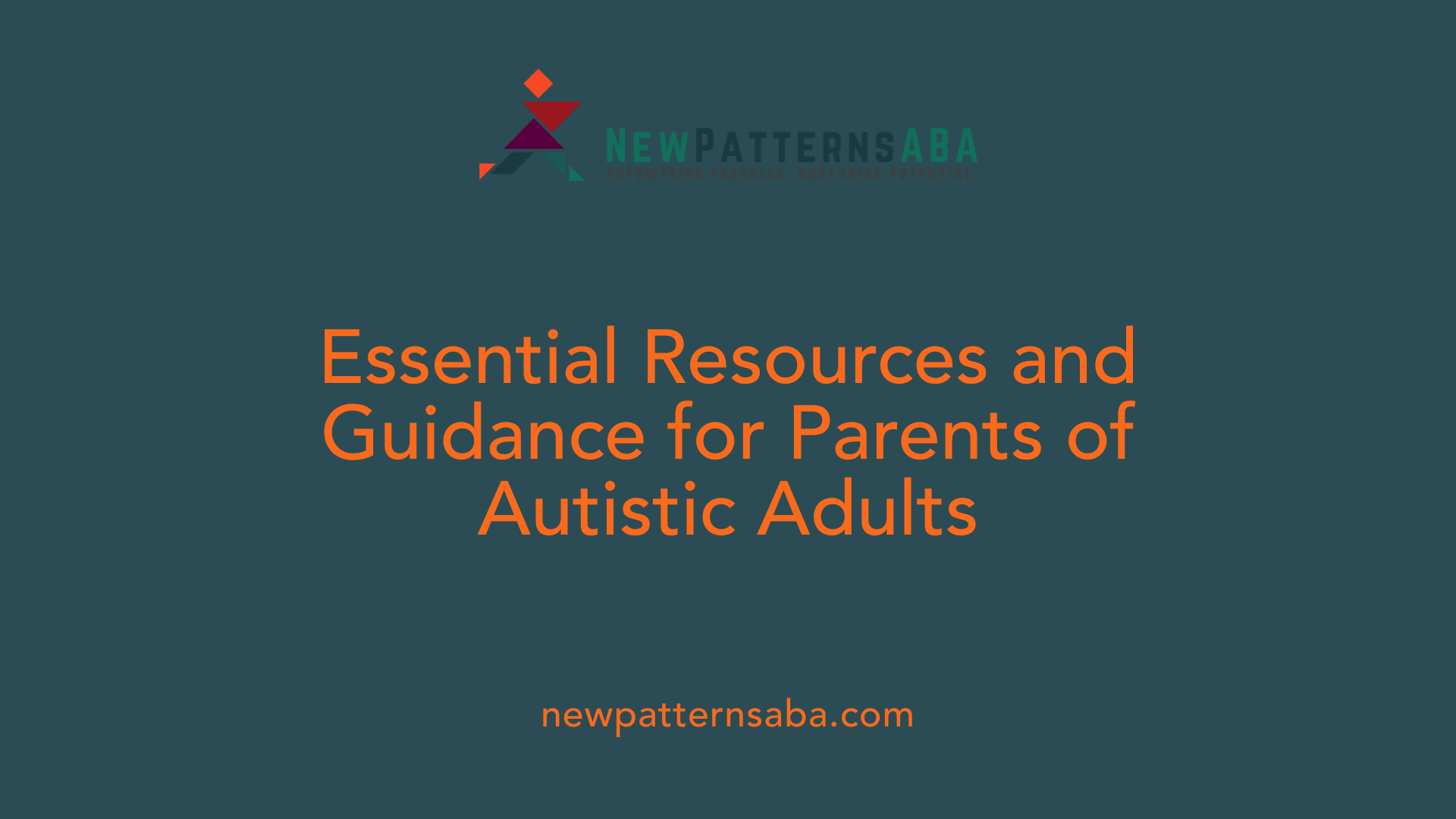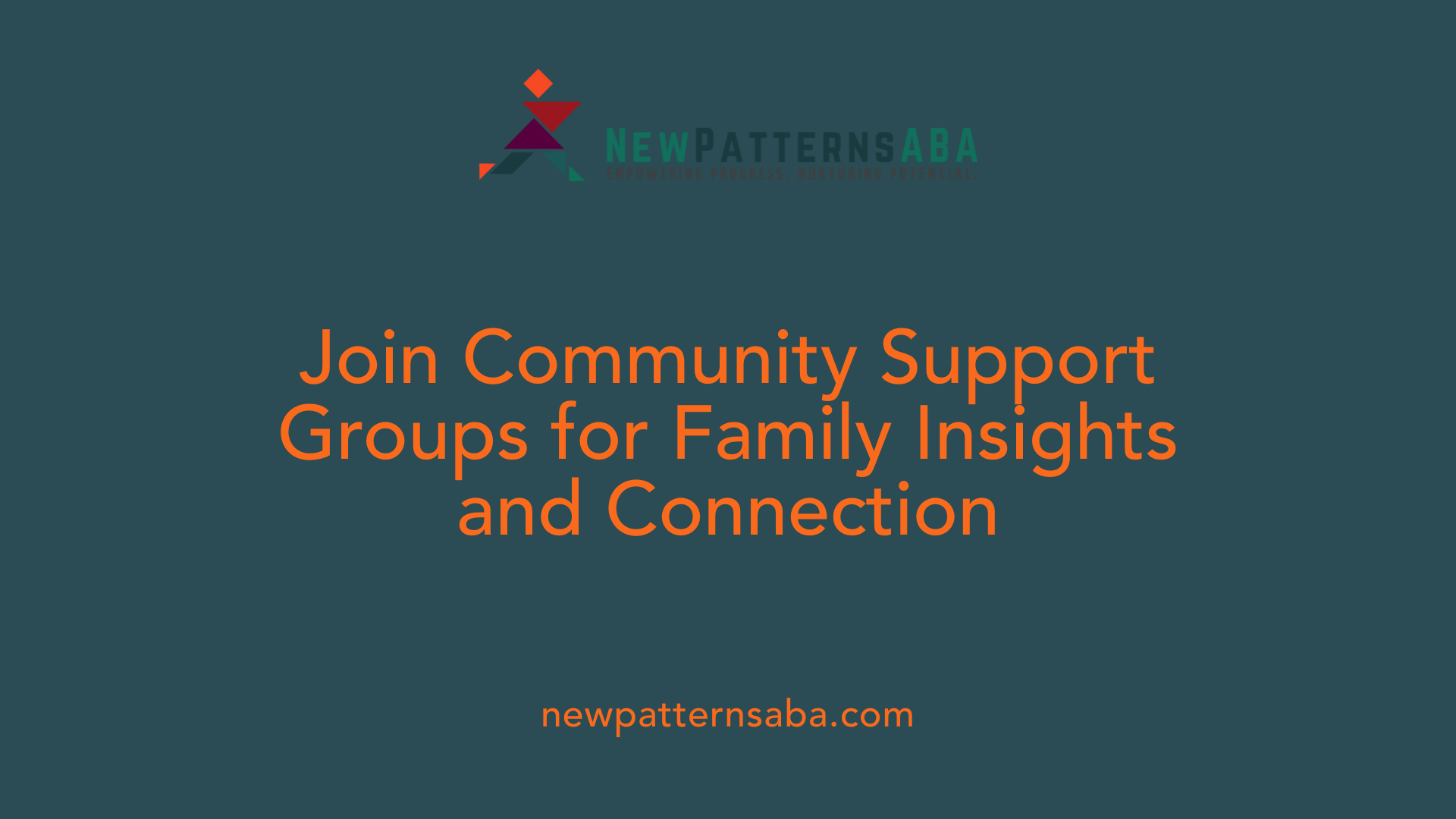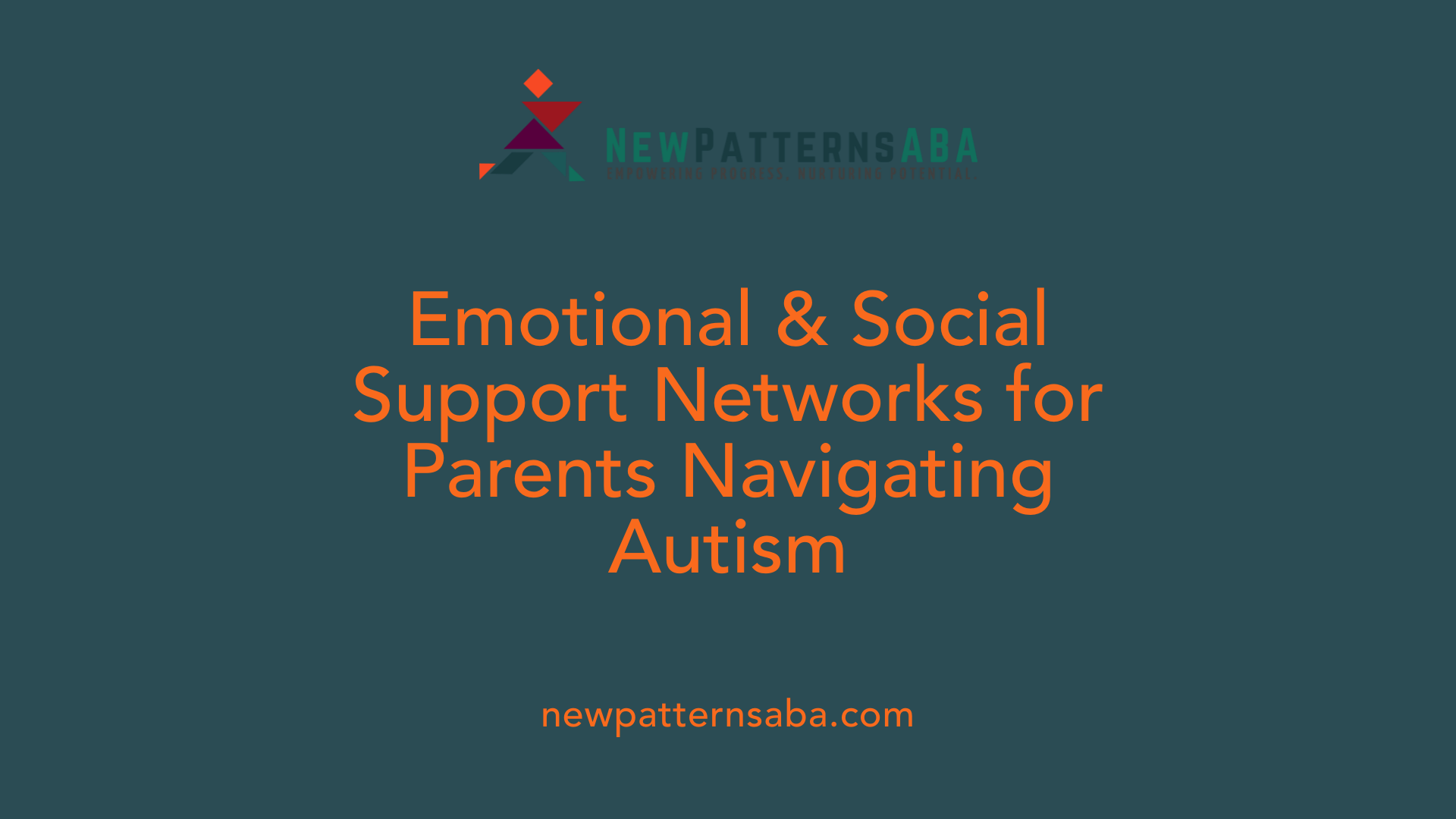A Comprehensive Guide to Supporting Autistic Adults and Their Families
Navigating the landscape of autism support can be complex, especially as autistic individuals transition into adulthood. Families and caregivers play a pivotal role in fostering independence, safety, and well-being. This article offers an in-depth exploration of the resources, support networks, personal insights, and effective strategies essential for empowering families in supporting autistic adults.
Resources for Autistic Adults and Their Families

What resources are available for autistic adults and their families?
Autistic adults and their families can access a broad array of resources designed to support various aspects of life. Community support groups are a vital part of these resources, providing peer connections, shared experiences, and emotional support. These groups often cater to specific needs such as employment, social skills, or navigating adulthood.
Informational services include online libraries, detailed guides, and advocacy tools that educate about rights, available services, and ways to foster inclusion in society. These resources help individuals and families understand healthcare options, housing choices, and aging considerations.
Advocacy tools empower autistic individuals and their families to participate actively in policy discussions and societal change. These include materials on self-advocacy, rights, and community involvement.
Support for important life transitions such as employment, housing, and healthcare is readily available through tailored programs. Employment support may involve job training and workplace inclusion initiatives, while housing options include residential support tools, questions to ask during search processes, and various accommodations.
Transition planning assistance helps both adults and families prepare for independence, focusing on developing social and life skills suitable for adulthood.
Many organizations offer specialized programs and policy reports that focus on improving societal inclusion, rights, and aging services for autistic adults. These include guides on navigating healthcare systems, aging-related challenges, and policies aimed at increasing accessibility.
Online resources, including policy publications and community directories, facilitate community participation and self-advocacy. Support networks such as the Autistic Self Advocacy Network and local autism organizations are accessible venues for engagement and information.
State and federal agencies supplement these offerings with additional services tailored to meet diverse needs. These programs enable holistic support, ensuring that autistic adults and their families receive comprehensive assistance across health, employment, housing, and social integration areas.
In summary, a wealth of resources exists to help autistic adults lead independent, meaningful lives. From community groups and educational tools to policy advocacy and tailored programs, these resources aim to promote wellbeing, societal inclusion, and personal fulfillment for individuals on the spectrum.
Guidance and Support for Parents and Caregivers of Autistic Adults
 Parents and caregivers of autistic adults often seek comprehensive support to navigate the unique challenges and opportunities of adulthood. Fortunately, a variety of resources are available to assist in this journey.
Parents and caregivers of autistic adults often seek comprehensive support to navigate the unique challenges and opportunities of adulthood. Fortunately, a variety of resources are available to assist in this journey.
Support groups and social networks play a vital role in providing peer support and shared strategies. Organizations like Autism Speaks and the Asperger Syndrome and High Functioning Autism Association offer specialized groups for families of post-high school autistic individuals. These groups facilitate emotional connection, offer practical advice, and help caregivers feel less isolated.
Educational programs tailored for families help deepen understanding of autism and prepare caregivers for the transition into adulthood. Many organizations focus on employment, independent living, and social skills development, equipping families with tools to promote independence and stability for their loved ones.
Advocacy efforts are crucial in ensuring access to practical supports such as housing, employment, and transportation. Resources like the Autism Support Network and the Transition to Adulthood Network provide guidance on navigating these systems and advocate for lifelong supports that include day programs, respite care, and community integration.
Emotionally supportive services, including helplines and counseling, provide a compassionate outlet for caregivers managing stress, burnout, and emotional challenges. The Parent to Parent Helpline, for example, offers empathetic listening, helping caregivers process feelings without necessarily giving specific solutions.
Coping mechanisms for caregivers can include utilizing structured routines, visual aids, reminder apps, and engaging in self-care practices. Access to professional help, such as therapy tailored for neurodiverse parents—like cognitive behavioral therapy (CBT) or occupational therapy—can address specific needs related to managing sensory overload and emotional regulation.
Building a support network that includes online communities, local autism organizations, and advocacy groups is essential for ongoing connection, advice, and validation. Engaging with these networks helps parents feel supported, informed, and empowered to advocate for their loved ones.
In summary, through a combination of peer support, educational resources, advocacy, and professional help, caregivers can better support autistic adults in leading fulfilling, independent lives. Staying connected to community resources and embracing a proactive approach enhances overall well-being for the entire family.
Community Support Groups and Family Sessions
 There are a variety of community support groups and sessions designed for families of autistic individuals, available both in person and online. Such groups are often organized by reputable organizations like Autism Speaks, the AANE (Autism Support and Education Network), and the Autism Society, providing tailored support for parents, siblings, grandparents, and other relatives.
There are a variety of community support groups and sessions designed for families of autistic individuals, available both in person and online. Such groups are often organized by reputable organizations like Autism Speaks, the AANE (Autism Support and Education Network), and the Autism Society, providing tailored support for parents, siblings, grandparents, and other relatives.
These groups typically include support for different age groups, from children to autistic adults, and often cater to specific communities, such as LGBTQ+ or BIPOC families, ensuring inclusive and culturally sensitive support. Facilitated by trained volunteers or professionals with lived experience, support sessions serve as safe spaces for sharing personal stories, venting frustrations, and seeking advice.
Families benefit from psychoeducational workshops that improve understanding of autism and develop practical skills for daily life and advocacy. Skill-building topics include managing sensory overload, developing routines, and navigating educational or employment systems.
Beyond support meetings, community activities such as recreational sports, faith-based gatherings, and social outings foster connectedness and inclusion. These activities not only provide fun and relaxation but also strengthen bonds among families involved.
| Support Group Type | Offered By | Focus Areas | Format |
|---|---|---|---|
| Parent Support Groups | Autism Speaks, local groups | Parenting strategies, emotional support | In-person/Online |
| Siblings and Extended Family | AANE | Supporting diverse family members | In-person/Online |
| Cultural & Identity Groups | Various advocacy organizations | Cultural sensitivity, identity-specific needs | In-person/Online |
| Adult Autism & Transition | Autism Society, AANE | Life skills, employment, socialization | In-person/Online |
| Recreational & Community Activities | Local community centers, faith groups | Community engagement, fun, inclusion | In-person |
Engaging in these community support options can help families share experiences, gain new insights, and find comfort in knowing they are not alone in their journey with autism.
Personal Accounts from Parents on Raising Children with Autism
Are there personal accounts from parents about raising children on the autism spectrum?
Yes, many parents share their stories about raising children on the autism spectrum. These personal accounts span a wide range of experiences, challenges, and triumphs, providing valuable insights and support.
Eileen Lamb, for instance, describes her journey caring for children with severe autism. She emphasizes the importance of early intervention, including therapies like Applied Behavior Analysis (ABA), to improve her children's quality of life and reduce dangerous behaviors.
Mothers of children with high-functioning autism often discuss their emotional paths—balancing pride and grief, managing stress, and seeking community support networks. Their stories highlight the importance of connecting with others who understand these unique experiences.
Rob Gorski, a single father, offers an open look into his life raising autistic children through his podcast and blog. His transparency and advice serve as an encouragement and practical guide to many other parents facing similar situations.
Overall, these personal narratives shed light on the realities of parenting children with autism. They demonstrate resilience, advocate for understanding, and foster a sense of community among families navigating these challenges.
Strategies, Support Services, and Long-Term Planning
What strategies and support services are recommended for families of autistic adults and teens?
Families navigating the transition from adolescence to adulthood for their autistic loved ones are encouraged to access a variety of tailored support services. Support groups led by experienced facilitators are highly recommended, as they offer a space for shared experiences, practical advice, and emotional connection. These groups often include parents of teenagers and young adults, grandparents, and partners, fostering a sense of community and mutual understanding.
Utilizing comprehensive resources such as parent guides, advocacy toolkits, and informational series further equips families to handle daily challenges and advocate effectively in educational settings and the broader community. These tools help families understand the rights of autistic individuals and promote their independence.
A person-centered approach is essential, emphasizing respect for the individual’s dignity, recognizing their strengths, and honoring their preferences. This approach ensures that support and interventions are tailored, respectful, and free from harmful practices.
Seeking professional guidance from reputable organizations like NICE (National Institute for Health and Care Excellence) or NHS (National Health Service) is important when planning interventions or support strategies. These professional perspectives help review and adapt support plans based on evolving needs.
Long-term planning is a crucial aspect of supporting autistic individuals. Families should consider legal and financial arrangements, such as guardianship or supported decision-making, and educational plans that foster ongoing development. Establishing these plans early ensures smoother transitions into adulthood, promoting independence and a fulfilling life. Open, honest communication within the family about aspirations, needs, and arrangements plays a pivotal role in securing a positive future.
Emotional and Social Resources for Parents of Autistic Adults
 Parents of autistic adults have access to a variety of emotional and social resources that can support their well-being and help them navigate their child's transition into adulthood. Support groups tailored specifically for families of autistic adults provide a vital space for sharing experiences, exchanging strategies, and gaining peer support. Organizations such as AANE and Autism Speaks facilitate these community connections, offering group sessions and online forums where parents can find understanding and practical advice.
Parents of autistic adults have access to a variety of emotional and social resources that can support their well-being and help them navigate their child's transition into adulthood. Support groups tailored specifically for families of autistic adults provide a vital space for sharing experiences, exchanging strategies, and gaining peer support. Organizations such as AANE and Autism Speaks facilitate these community connections, offering group sessions and online forums where parents can find understanding and practical advice.
Counseling services and family support specialists are also crucial resources. These professionals can offer tailored guidance on managing emotional challenges, understanding rights, and accessing benefits related to housing, employment, and healthcare. Many community-based programs provide social outings and activities designed to foster new connections and reduce social isolation for both parents and their adult children.
Advocacy resources and policy reports from organizations like the Autistic Self Advocacy Network (ASAN) help parents stay informed about legal rights and policy changes affecting services and benefits. These tools empower families to advocate effectively for their adult children, ensuring they receive the necessary support to lead meaningful lives.
In summary, a comprehensive network of support groups, counseling options, social activities, and advocacy tools are available to help parents of autistic adults stay connected, informed, and empowered in their parenting journey.
Supporting Autistic Parents in Their Parenting Roles

Recognizing strengths and managing challenges
Autistic parents often possess notable strengths such as deep empathy, a strong sense of routine, organization, and analytical problem-solving skills. These qualities enable them to provide nurturing and structured environments for their children. However, they may also face challenges related to sensory sensitivities, difficulties in emotional regulation, managing executive functioning tasks like planning and organization, and adapting to unpredictable situations. Understanding these aspects allows parents and support systems to tailor strategies that leverage strengths while addressing challenges.
Creating routines and visual aids
Establishing predictable routines helps reduce stress and increase stability in daily life for autistic parents and their children. Using visual aids, such as schedules and checklists, can aid in communication and task management. Visual tools serve as external supports to clarify expectations, assist with transitions, and improve time management. Sensory tools, like noise-canceling headphones or calming sensory toys, also support managing sensory sensitivities, promoting emotional regulation and comfort.
Peer support networks and advocacy organizations
Connecting with peer support networks, such as those facilitated by Autism Speaks, AANE, and other autism organizations, offers invaluable community and shared experience. These groups provide a platform for exchanging advice, emotional support, and practical tips. Advocacy organizations also help parents access resources related to therapy, employment, housing, and community services. Such support networks foster a sense of belonging, reduce isolation, and reinforce resilience.
Evidence-based interventions
Implementing evidence-based interventions tailored to the needs of autistic parents and their children is crucial. Techniques such as caregiver-mediated interventions, including modeling, role play, and technology-based training, have shown to boost confidence and parenting skills. Professional therapies like cognitive behavioral therapy (CBT), acceptance and commitment therapy (ACT), and occupational therapy can address sensory, emotional, and executive functioning challenges. These interventions are tailored to support both the parent’s and child's developmental goals.
Self-care and community involvement
Prioritizing self-care is vital for autistic parents to maintain their well-being and prevent burnout. Strategies include creating personal routines, seeking support from partners or trusted individuals, and participating in community activities. Community involvement through local autism groups, online forums, and advocacy groups offers validation and resources. Taking time for oneself, engaging in hobbies, and building a support system enhances overall resilience, benefiting both parents and children.
| Aspect | Support Strategies | Resources/Tools |
|---|---|---|
| Strengths | Focus on empathy, organization, problem-solving | Peer groups, parent coaching |
| Challenges | Sensory overload, emotional regulation, planning | Visual aids, sensory tools, therapy |
| Routines | Visual schedules, structured environment | Checklists, timers |
| Support Networks | Peer support, advocacy groups | Autism Speaks, AANE, community forums |
| Interventions | Evidence-based therapies, modeling, role play | Cognitive behavioral therapy, occupational therapy |
| Self-care | Prioritize personal time, community involvement | Hobby groups, online communities |
Supporting autistic parents involves a comprehensive approach that recognizes their unique strengths and addresses their specific challenges. By combining personalized strategies, professional support, and community engagement, autistic parents can flourish in their vital parenting roles and foster nurturing, stable environments for their children.
Fostering a Supportive Environment for All,
In supporting autistic adults and their families, it is essential to leverage a diverse array of resources, foster community connections, and promote understanding and advocacy. Recognizing the unique strengths and challenges faced by autistic individuals and their parents enables the development of personalized, empowering support systems. Continuous education, accessible services, and peer support are vital in helping families navigate transitions and live fulfilling lives. By working collectively to strengthen support networks and advocate for comprehensive policies, we can create an inclusive society where autistic adults thrive and families feel supported throughout their journey.





